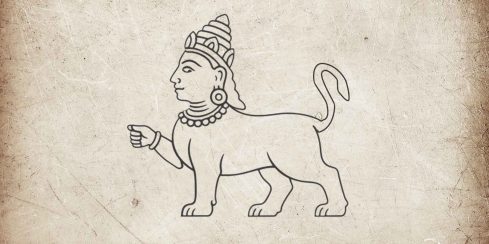This website uses cookies so that we can provide you with the best user experience possible. Cookie information is stored in your browser and performs functions such as recognising you when you return to our website and helping our team to understand which sections of the website you find most interesting and useful.
| wordpress_logged_in | is used to indicate when you are logged in, and who you are. This cookie is maintained on the front-end of the website as well when logged in
|
If you disable this cookie, we will not be able to save your preferences. This means that every time you visit this website you will need to enable or disable cookies again.
| SAPISID |
| SAPISID cookies enable Google to collect user information for videos hosted by YouTube.
| ||||
| APISID |
| APISID cookies enable Google to collect user information for videos hosted by YouTube.
| ||||
| HSID |
| HSID cookies enable Google to collect user information for videos hosted by YouTube.
| ||||
| __Secure-3PSID |
| Builds a profile of website visitor interests to show relevant and personalized ads through retargeting.
| ||||
| SID |
| Security cookie to confirm visitor authenticity, prevent fraudulent use of login data and protect visitor data from unauthorized access.
| ||||
| __Secure-3PAPISID |
| Builds a profile of website visitor interests to show relevant and personalized ads through retargeting.
| ||||
| SSID |
| Google collects visitor information for videos hosted by YouTube on maps integrated with Google Maps.
| ||||
| NID |
| Stores visitors’ preferences and personalizes ads on Google websites based on recent searches and interactions.
| ||||
| _gat |
| which is used to throttle the request rate and it expires after 1 minute.
| ||||
| CONSENT |
| This cookie is used to track consent to cookie use.
| ||||
| ANID |
| One of the main advertising cookies on non-Google sites is named ‘IDE‘ and is stored in browsers under the domain doubleclick.net. Another is stored in google.com and is called ANID.
| ||||
| SEARCH_SAMESITE |
|
| ||||
| __gads |
| Used by Google DoubleClick for Publishers to advertise on the site
| ||||
| _ga | Google Analytic | This cookie is the centerpiece among all cookies because it is the one used for visitor tracking
| ||||
| _fbp | Facebook pixel | the pixel automatically saves a unique identifier to an _fbp cookie for the website domain if one does not already exist.
| ||||
| _gid | Google Analytics | Google Analytics cookies to track users as they navigate the website and help improve the website's usability.
| ||||
| fr | Facebook pixel | It contains Encrypted Facebook ID and Browser ID and the purpose is for Advertisement
| ||||
| fbm_220848925179805 | Facebook pixel | cookie used by Facebook applications (needed for logging in by FB)
| ||||
| NID | Google ads | The NID cookie contains a unique ID Google uses to remember your preferences and other information, such as your preferred language
| ||||
| xs | Facebook pixel | This cookie contains multiple pieces of information, separated by colon
| ||||
| DSID | Google ads | This cookie is set to note your specific user identity. It contains a hashed/encrypted unique ID.
| ||||
| __gads | Google ads | Used by Google DoubleClick for Publishers to advertise on the site
| ||||
| c_user | Facebook Cookies Analysis | It provides information to Facebook to associate functionality of Social Plugin. Send information to Facebook regardless if you are a member or you have logged on the social network. For more information read the paragraph "Facebook (Social Plugin)" about Cookies Third Part
| ||||
| datr | Facebook Cookies Analysis | It provides information to Facebook to associate functionality of Social Plugin. Send information to Facebook regardless if you are a member or you have logged on the social network. For more information read the paragraph "Facebook (Social Plugin)" about Cookies Third Party.
| ||||
| sb | Facebook Cookies Analysis | These cookies are used by Facebook to support social sharing and the integration of Facebook services.
| ||||
| IDE | doubleclick | This domain is owned by Doubleclick (Google). The main business activity is: Doubleclick is Googles real time bidding advertising exchange
|
Please enable Strictly Necessary Cookies first so that we can save your preferences!
| PHPSESSID | The PHPSESSID cookie is native to PHP and enables websites to store serialised state data. On the Action website it is used to establish a user session and to pass state data via a temporary cookie, which is commonly referred to as a session cookie. As the PHPSESSID cookie has no timed expiry, it disappears when the client is closed. |
| ckexitintent | Used to track display of exit popup |
| ckarticlesubspopup | Used to track display of Subscribe popup in article page |
| dwqa_anonymous | Is set during the anonymous use of the FAQ pages, in order to facilitate the interaction. |
| wordpress_test_cookie | This is a test cookie, to see if cookies are enabled.
|
| wordpress_logged_in | is used to indicate when you are logged in, and who you are. This cookie is maintained on the front-end of the website as well when logged in
|
| wp-settings-time | Time at which wp-settings-{user} was set 8. moove_gdpr_popup - This cookie enables us to remember your cookie preferences and prevent repeated requests for confirmation. |
| wp-saving-post | Auto-saving cookie: wp-saving-post is a WordPress cookie created when auto-saving a post in the editor. Used to track if there is saved post exists for a post currently being edited. If exists then let user restore the data. |
| uvc | These cookies are for the purpose of sharing pages and content that interests you on our site through third party social networking or other websites.
|
| __cfduid | The "__cfduid" cookie is set by the CloudFlare service to identify trusted web traffic. It does not correspond to any user id in the web application, nor does the cookie store any personally identifiable information. |
| __cflb | The "__cfduid" cookie is set by the CloudFlare service to optimize performance of the SEMrush website. |
Please enable Strictly Necessary Cookies first so that we can save your preferences!
The Website uses temporary cookies, which are files that Your web browser puts on Your system when You visit a website, to store certain information that is not sensitive personal information. The information collected through these cookies is used by Us for the technical administration of the Website, research and development, and to improve the quality of Our Services (which is explained in greater detail below).
We may use third party cookies to track visitor behaviour and to improve the quality of Our Services. However, such cookies will not store any kind of personal information, nor will such information be disclosed to any third party.
We use cookies to:
- (i) recognize You when You visit our Website/platform;
- (ii) make Your interactions with Our Services/Website/platform faster and more secure;
- (iii) enable the functionality of Our Services and providing you with features, insights and customized content in conjunction with Our plugins. We also use these technologies to remember information about Your browser and Your preferences;
- (iv) customize Your experience on Our Services;
- (v)show relevant advertising to You more effectively; and
- (vi) help Us learn more about how well Our Services/Website and plugins perform in different locations.
These cookies are intended to be automatically cleared or deleted when the User quits the browser application. You are encouraged to use the "clear cookies" functionality of Your browser to ensure such clearing/deletion, since it is impossible for Us to guarantee, predict or provide for the behaviour of Your system.
The information We collect with cookies is not sold, rented, or shared with any third parties











Comments